
German SMEs to Continue Trade With Iran
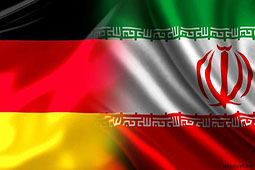
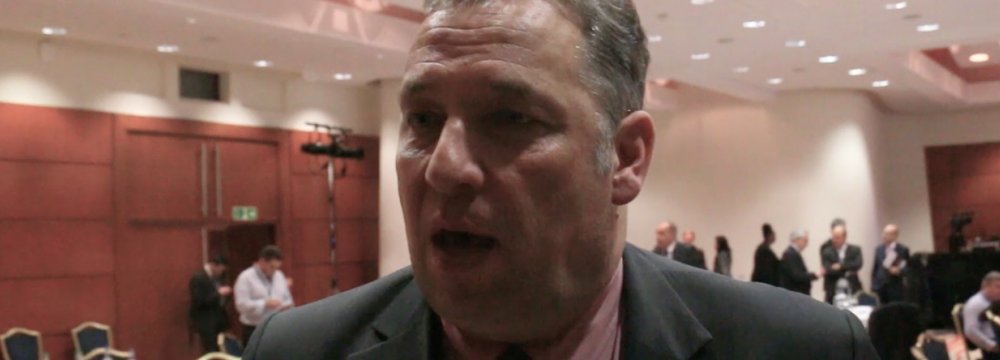
"The situation is quite clear for us because the sanctions which are now put in practice are well known for us since months. The situation is divided, the big companies, especially the stock exchange companies, here in Germany, they stopped their trade and investment relationd with Iran. The backbone of our economy, small- and medium-sized companies, they will continue to do trade with Iran and we expect every month between €200 to €250 million exports from Germany to Iran, even in the future," Michael Tockuss told DW.
Germany is convinced that it should enable legal business relations with Iran and is checking how to protect companies affected by sanctions reimposed on Iran by Washington, a government spokesman said on Monday.
“We are assessing how we will be able to protect the basis of our business engagements there,” government spokesman, Steffen Seibert, was quoted as saying by Reuters.
Frustration at EU's Submissiveness
Elsewhere during his interview with DW, Tockuss, who is also the head of Hamburg Chamber of Commerce, slammed EU's inaction in the face of US sanctions, saying it has been all talks on the part of the European Union so far and no practical actions.
"The EU gave a lot of strong political statements. They were talking about blocking sanctions, they were talking about special vehicle for financial transactions with Iran but nothing came, at least up to today. I can tell you none of our member has one practical step forward, one practical support from the EU or from our ministries in Berlin. The EU shows practically nothing to support the Iran deal," he said.
A special clearing house designed to allow European companies that trade with Iran to bypass newly reimposed US sanctions will be set up in Europe within months, possibly in France or Germany, The Guardian reported on Tuesday.
The clearing house, known as a special purpose vehicle, is seen as critical to reassuring Tehran that the EU genuinely wishes to reward Iran for signing the 2015 deal on its nuclear program by expanding business with the country, the British daily newspaper added.
Echoing Tockuss's disappointment at EU's inaction, Iran's Deputy Foreign Minister Kazem Sajjadpour, speaking in London, expressed his frustration at the pace with which the SPV is being set up, saying: “What is lacking is both speed and efficiency.”
SPV would serve as a barter exchange neither connected to the US dollar-denominated international financial system nor requiring monetary transfers between EU countries and Iran.
An Iranian firm selling into Europe would accumulate credits that could be then used to buy a product from a different European firm.
Officials are working through how a SPV would protect, for instance, a German firm operating in the US from secondary sanctions.
"US Economic Imperialism"
A failure to set up the SPV would be a humiliation for broader advocates of greater European economic independence from the dollar such as French Finance Minister Bruno Le Maire.
Supporters of SPV regard the imposition of secondary sanctions on European companies in pursuit of its foreign policy goals as an illegitimate demonstration of US economic imperialism, The Guardian reported.
Le Maire has told the British newspaper Financial Times that Europe is planning the formation of a special financial channel to Iran to keep trade flowing with the country and assure its own “economic sovereignty”, with the aim of making the euro as powerful as the dollar.
“Europe refuses to allow the US to be the trade policeman of the world,” Le Maire stated in an interview in Brussels, emphasizing that Europe must “affirm our sovereignty” in regards with the US sanctions on Iran and its wider economic hegemony.
Tockuss concluded by saying that Iran and the world sans US will draw on their experience with the previous round of sanctions to maintain trade with the Islamic Republic.
"These sanctions again they are not totally new for us. We had a time between 2012 and 2016 where we had this kind of US sanctions," he said.
"Additionally, EU sanctions and United Nations’ sanctions, and never it was possible to stop this country neither from trading in machinery or from exporting their oil. The Iranians have a lot of experience with this kind of sanctions. This time, they are not standing alone: the Russians are with them, the Chinese are with them. And a lot at least of the European countries are with them."
German Ambassador Reaffirms Commitment to JCPOA
Germany's Ambassador to Tehran Michael Klor-Berchtold on Tuesday reaffirmed his country's commitment to Iran's nuclear deal (formally known as the Joint Comprehensive Plan of Action) in spite of the US reimposition of unilateral sanctions.
"The German government is fully aware of the problems created by the US government for Iran and remains committed to its agreements as part of the JCPOA," he said during a meeting with Iran Small Industries and Industrial Parks Organization representatives, ISIPO's website reported.
In comments similar to Tockuss, the envoy referred to small- and medium-sized enterprises with short-term yields as major placeholders for expanding Iran-Europe ties under the current circumstances, saying SMEs are the true backbone of the German economy.
"We wholeheartedly support and welcome the cooperation of SMEs of the two countries," the ambassador said, adding that such firms realize creativity and innovation as they understand markets well.
Klor-Berchtold further said the embassy is following up on facilitating visa issuance problems for Iranian business representatives.
"The embassy is striving to reduce the time and ease the process based on which visas are issued for Iranian business representatives for them to be able to participate in exhibitions or educational courses held in Germany," he said.
Sadeq Najafi, deputy minister of industries, mining and trade, said 90% of Iranian SMEs represent short-term profit businesses that can be supported by Germany in expanding trade in the face of US sanctions.
"The realities of Iran in the area of SMEs must be communicated to European companies," he said, noting that the US may continue to exert pressure on Iran.
"But we are used to operating under harsh conditions and expect the German government to stand beside Iran."


Gold price eases after Trump downplays clash with Fed chair Powell

Copper price hits new record as tariff deadline looms
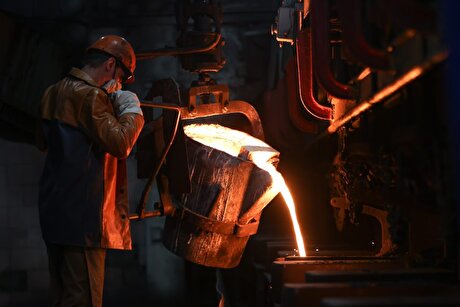
Brazil producers look to halt pig iron output as US tariff threat crimps demand

Chile’s 2025 vote puts mining sector’s future on the line

Gold price could hit $4,000 by year-end, says Fidelity

Three workers rescued after 60 hours trapped in Canada mine

US targets mine waste to boost local critical minerals supply

Glencore workers brace for layoffs on looming Mount Isa shutdown
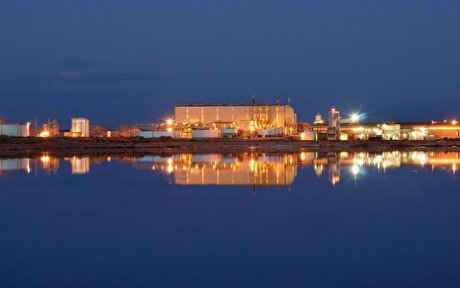
Energy Fuels surges to 3-year high as it begins heavy rare earth production
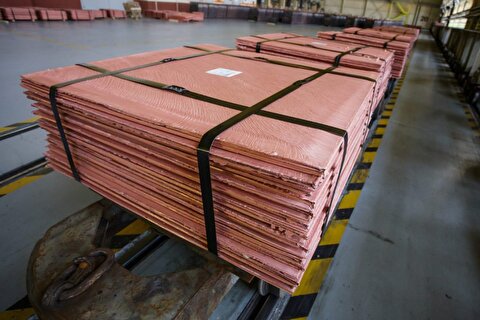
Trump tariff surprise triggers implosion of massive copper trade

Maxus expands land holdings at Quarry antimony project in British Columbia

BHP, Vale accused of ‘cheating’ UK law firm out of $1.7 billion in fees

Southern Copper eyes $10.2B Mexico investment pending talks

American Tungsten gets site remediation plan approved for Ima mine in Idaho

Kinross divests entire 12% stake in Yukon-focused White Gold

Gold price could hit $4,000 by year-end, says Fidelity

Southern Copper expects turmoil from US-China trade war to hit copper

Ramaco Resources secures five year permit for Brook rare earth mine in Wyoming

Column: EU’s pledge for $250 billion of US energy imports is delusional

Trump tariff surprise triggers implosion of massive copper trade

Maxus expands land holdings at Quarry antimony project in British Columbia

BHP, Vale accused of ‘cheating’ UK law firm out of $1.7 billion in fees

Southern Copper eyes $10.2B Mexico investment pending talks

American Tungsten gets site remediation plan approved for Ima mine in Idaho

Kinross divests entire 12% stake in Yukon-focused White Gold

Gold price could hit $4,000 by year-end, says Fidelity

Southern Copper expects turmoil from US-China trade war to hit copper

Ramaco Resources secures five year permit for Brook rare earth mine in Wyoming














